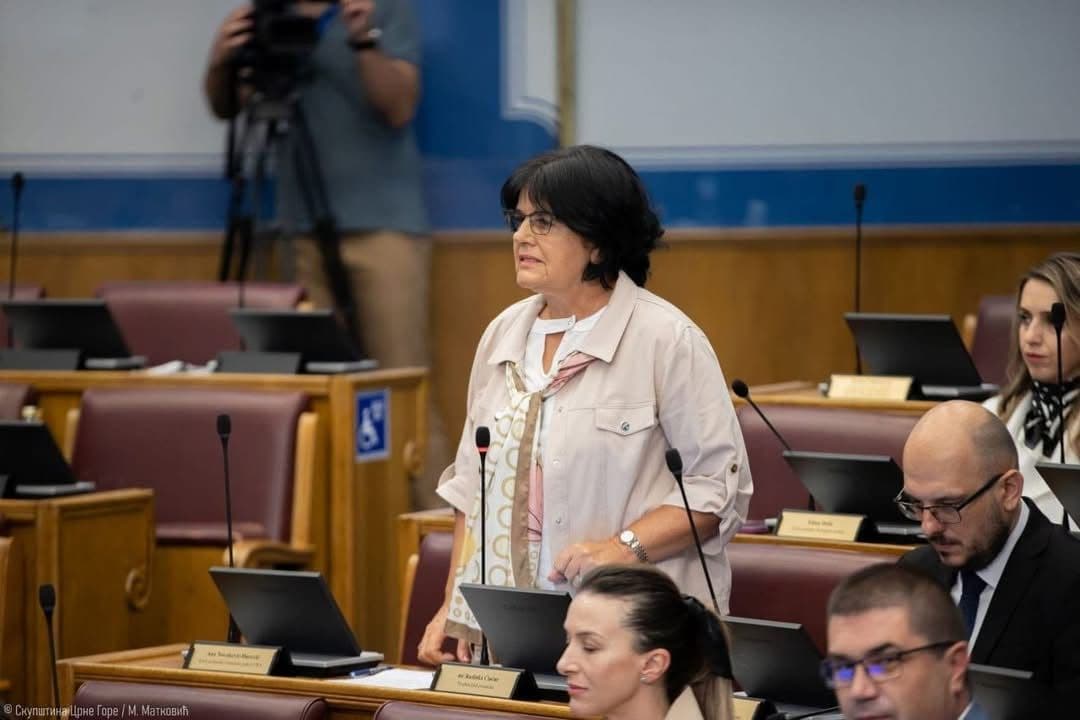Lifestyle
Montenegro’s Premier Evades Questions on Turkish Investment Impact

Montenegro’s Prime Minister, Milojko Spajić, faced criticism for not addressing key questions regarding the economic impact of Turkish investment in the country. During a parliamentary session, Radinka Ćinćur, a member of the special parliamentary club, highlighted Spajić’s tendency to avoid uncomfortable topics. Today was no exception as he reportedly sidestepped her inquiries concerning Turkish capital’s influence on Montenegro’s economy.
Ćinćur raised significant concerns about the influx of Turkish investment, noting that Turkish investors had contributed over €90 million within the first eight months of this year. She pointed out that these investors own interests in approximately 14,500 registered companies in Montenegro, despite the country having only 13,500 residents. This discrepancy raises questions about the sustainability and oversight of such investments.
In her inquiry, Ćinćur pressed Spajić on whether measures had been implemented to prevent potential abuses tied to investment arrangements and real estate purchases, particularly concerning money laundering or concealed ownership. She specifically referenced the Zeren Group, which is under scrutiny for allegations of money laundering, tax fraud, and other abuses in multiple jurisdictions, including recent arrests in Croatia and Slovenia.
She sought clarification on whether Montenegrin institutions, such as the Ministry of Interior (MUP) and the Financial Intelligence Unit (FOJ), had investigated the origins of capital and the business activities of the Zeren Group within Montenegro. Ćinćur emphasized the importance of understanding the real ownership and financial flows of such companies, particularly in light of Montenegro’s aspirations for full compliance with European Union standards for preventing money laundering.
Ćinćur also asked if the government planned to collaborate with the FOJ to conduct targeted checks on foreign companies from Turkey operating in high-risk sectors, including real estate, tourism, trade, and financial services. She stressed the need for transparency and oversight in these investments, especially during a time when xenophobic incidents have reportedly increased in Montenegro.
In response to the lack of transparency, Ćinćur remarked that it is unsurprising for a government whose financial affairs are managed by an individual lacking an accredited degree to prioritize money, regardless of its source. She asserted that the citizens of Montenegro deserve answers to these pressing questions, highlighting the significance of governance and accountability in the current economic climate.
-

 Health3 months ago
Health3 months agoNeurologist Warns Excessive Use of Supplements Can Harm Brain
-

 Health3 months ago
Health3 months agoFiona Phillips’ Husband Shares Heartfelt Update on Her Alzheimer’s Journey
-

 Science1 month ago
Science1 month agoBrian Cox Addresses Claims of Alien Probe in 3I/ATLAS Discovery
-

 Science1 month ago
Science1 month agoNASA Investigates Unusual Comet 3I/ATLAS; New Findings Emerge
-

 Science4 weeks ago
Science4 weeks agoScientists Examine 3I/ATLAS: Alien Artifact or Cosmic Oddity?
-

 Science4 weeks ago
Science4 weeks agoNASA Investigates Speedy Object 3I/ATLAS, Sparking Speculation
-

 Entertainment4 months ago
Entertainment4 months agoKerry Katona Discusses Future Baby Plans and Brian McFadden’s Wedding
-

 Entertainment4 months ago
Entertainment4 months agoEmmerdale Faces Tension as Dylan and April’s Lives Hang in the Balance
-

 World3 months ago
World3 months agoCole Palmer’s Cryptic Message to Kobbie Mainoo Following Loan Talks
-

 Science4 weeks ago
Science4 weeks agoNASA Scientists Explore Origins of 3I/ATLAS, a Fast-Moving Visitor
-

 Entertainment4 months ago
Entertainment4 months agoLove Island Star Toni Laite’s Mother Expresses Disappointment Over Coupling Decision
-

 Entertainment3 months ago
Entertainment3 months agoMajor Cast Changes at Coronation Street: Exits and Returns in 2025









